Industrial Advisory Group
In January 2015, we launched our Renewable Energy Industrial Advisory Group (IAG), now chaired by Dr Tim Fox. The IAG meet three times a year to act as independent advisors on matters of policy and future direction of the Department of Renewable Energy and to work with the Head of Department and staff to determine and agree matters of priority for Department of Renewable Energy activities.
We would like to thank the members of our IAG for agreeing to give up their time in this way.
Please see below for information on some of our members:
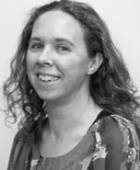
Name: Chris Coonick
Current organisation and role: BRE National Solar Centre, Senior Consultant
Experience, qualifications and membership of professional bodies: FdSc Electrical Engineering & Renewable Energy, MSc Renewable Energy & the Built Environment, qualified electrician. Member of IET.
I have been working in the renewable energy industry since 2010 and have practical experience in design, installation and R&D. Through BRE I have published industry recognised guidance on different aspects of solar and storage technologies. I am involved in a number of UK and International standards committees and represent the UK for BIPV standards. I am a member of the UK Solar Commission and a European Commission expert for solar. I am a STEM Ambassador, Technical Director of a community energy group and trustee of the Cornwall Sustainable Building Trust.
What was your motivation for joining the IAG: Representing women in engineering and to support students interested in a career in solar and/or solar related research projects.
How do you see the IAG contributing towards Renewable Energy at Penryn: We can act as a sounding board for ideas, provide our knowledge and experience of current/ future market conditions and the impact it has on course content and skills required. Better engagement with students for research projects, work placements, guest lecturers etc.
What expertise do you bring to the group: Innovation, risk mitigation and standardisation in solar & storage technologies.
What skills do you think are most important in an engineer: problem solving & communication.
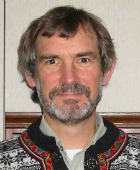
Name: Robin Curtis
Current organisation and role: GeoScience Ltd - Director and GSHP Specialist
Experience, qualifications and membership of professional bodies:
- BSc (Engineering), PhD (Engineering), MEI, Assoc Member CIBSE,
- Certified Geothermal Designer (AEEE).
Nuclear Engineer by training. Have worked in early SuperComputing, numerical machine tools and industrial robots. Last 35 years in Cornwall in deep geothermal, but primarily now in ground source heat pumps, small to large all over the UK and (occasionally) overseas.
What was your motivation for joining the IAG: To share experience and knowledge and to engage with current developments in renewables particularly in Cornwall.
How do you see the IAG contributing towards Renewable Energy at Penryn: By knowledge transfer between practicing RE companies and staff and students at Tremough. Through IAG engagement with wider energy issues, policy developments, policy shaping, locally and nationally.
What expertise do you bring to the group: Limited ! Just my personal engineering experience of 47 years...across a somewhat odd collection of engineering applications.
What skills do you think are most important in an engineer: Technical adaptability and willingness to listen and/or learn.

Name: James Davison
Current organisation and role: Pure Energy Professionals – Project Manager
Experience, qualifications and membership of professional bodies: More than 10 years’ experience working exclusively in the Renewable Energy sector on a variety of business and project activities.
Site screening, selection of 100s of potential projects and continued development of multiple successful renewable energy planning applications throughout the UK. Acted as lead construction manager for multiple wind projects built successfully under the UK FiT support scheme and lead construction monitoring of sites in Europe, including a 90MW wind project in rural Sweden for a major European brand.
Continuing operations management of more than 20 wind projects in the UK. Operational reviews of around 200MW of European wind assets including detailed technical performance reviews of around 75 individual turbines.
Technical and commercial due diligence of more than 2.5GW of wind and solar assets throughout Europe and North America as well as technology reviews of new and emerging marine (wave & tidal) and biomass energy systems.
FCA authorised to provide investment advice in renewable energy opportunities under PEP’s FCA-approved subsidiary, Pure Energy Ventures. M&A activities include asset marketing, project management and transaction support for several multiple multi-million pound deals in both wind and solar technologies.
MEng (hons) in Renewable Energy
Associate member of Energy Institute, UK
What was your motivation for joining the IAG:
- To provide a window on the Renewable Energy course students and teaching staff activities.
- To explore and access opportunities for collaboration.
How do you see the IAG contributing towards Renewable Energy at Penryn: Providing opportunities for academic – commercial collaboration and helping to steer the Renewable Energy course in a commercially relevant direction.
What expertise do you bring to the group: An ex-student’s view from a commercially active Renewable Energy company based in Cornwall.
What skills do you think are most important in an engineer: Communication – both written and verbal.
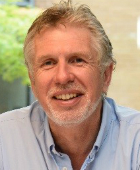
Name: Karl Friedrich
Current organisation and role: Hoare Lea LLP, Partner
Experience and qualifications: I have over 32 years of experience as a mechanical designer, project associate and now project partner and have worked on a wide range of complex schemes both locally and nationally. With extensive experience of the healthcare and education sector with respect to mechanical and electrical engineering and sustainability aspects, I regularly advise, professional, client and team members on many aspects of these sectors. As partner, I am also accountable for work winning, office management and resource.
BSc (Hons) MSc CEng MCIBSE IHEEM
What was your motivation for joining the IAG: As I am already actively involved in Hoare Lea’s support of a variety of schools, colleges and universities, joining the IAG will enable to me to increase my involvement in this important initiative. As a firm, we regularly provide learning opportunities for young people via work experience and placements. Inspiring young people to engage with engineering is a particular passion of mine and I regularly organise various presentations, debates and events based around ‘digital engineering’ recognising the importance of generating interest within the younger generation and the careers guidance bodies. I believe that our firm’s contribution to the wider Government campaign to solve the skills shortage in engineering, is vital in helping to increase diversity in the industry and I am proud to be a part of that initiative.
How do you see the IAG contributing towards Renewable Energy at Penryn: It is important that industry and education work together to help give students a complete perspective of the engineering industry. When firms help support learning institutions by offering up to date and relevant information about the wider engineering sector, and what firms are looking for in their graduates, this can only help better prepare students for the wider world of work as well as inspiring young people to become involved with engineering.
What expertise do you bring to the group: Not only can I bring an immense wealth of engineering knowledge to the group, I can also bring my experience of working with other schools, colleges & universities having presented to many of these organisations in the past and can offer ideas as to how best I think the IAG can contribute to the engineering teaching at Exeter.
What skills do you think are most important in an engineer: Not only does an engineer need effective technical skills, creativity and problem solving skills, they also need to be commercially aware, which is where the IAG can help greatly, have the ability to work under pressure and to be able to work effectively as a team.

Name: Dr Tim Fox (IAG Chair)
Current organisation and role: Independent Consultant and Royal Academy of Engineering Visiting Professor in Clean Energy and Public Engagement.
Experience, qualifications and membership of professional bodies: Expert in low carbon energy systems, sustainable food systems, cleantech and climate change mitigation and adaptation. Extensive experience in marketing, business development, commercialisation, funding acquisition, policy advocacy and relationship building gained across a wide range of engineering-based industries including energy, chemical processing, transport and the built environment. Previously employed in small and large internationally focused commercial enterprises, government agencies and educational institutions based in the UK, The Netherlands, Canada and Australia.
BSc Civil Engineering, PhD in Fluid Dynamics and PGCE (PCET).
Chartered Engineer, Fellow of the Institution of Mechanical Engineers (FIMechE), Chair of the IMechE Process Industries Division Board and member of IMechE Council.
What was your motivation for joining the IAG: An interest in bringing industrial experience and expertise to the teaching and curriculum development associated with the Renewable Energy Engineering courses offered by the University of Exeter.
How do you see the IAG contributing towards Renewable Energy at Penryn: Helping to ensure that the teaching and curriculum meets the needs of both academia and industry and prepares students for a productive, successful and meaningful career; participating as an expert audience at student project presentations and student lead outreach events; providing opportunities for student projects and industrial placements.
What expertise do you bring to the group: A mix of industrial, academic, commercial and policy expertise as well as experience of participating in, and Chairing, voluntary professional advisory committees.
What skills do you think are most important in an engineer: An ability to efficiently solve technical problems based on a thorough grasp of fundamental engineering principles whilst fully understanding and accounting for the environmental, economic and social context within which the solution is required and effectively communicating the outcome.
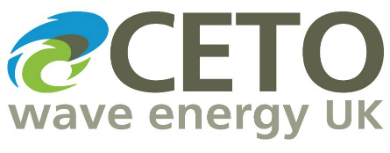
Name: Jack Jorgensen
Current organisation and role: Project Engineer, CWE UK Ltd
Experience, qualifications and membership of professional bodies: B.Eng (Mechanical Engineering), Curtin University
Member, Engineers Australia
What was your motivation for joining the IAG: The Renewable Programme at Penryn is a potential recruitment source for any renewables business in the C&IoS region, and the ability to provide input into the courses through the IAG is a great opportunity.
How do you see the IAG contributing towards Renewable Energy at Penryn: The IAG provides great exposure to the academics behind the Renewable Energy programme at Penryn, and gives industrial participants an opportunity to put forward their views on the skills required of graduates from the programme. This should shape the programme to deliver graduates who are well aligned with industrial needs.
What expertise do you bring to the group: Marine Energy project and technology development
What skills do you think are most important in an engineer: Good critical thinking, ability to reflect on unsuccessful work, and resolution against challenges.
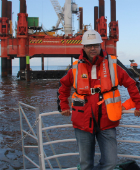
Name: Les Lugg
Current organisation and role:
- Fugro GeoServices Ltd – Nearshore Director
- WaveWalker BV – Managing Director
Experience, qualifications and membership of professional bodies: With over 21 years’ in the marine and engineering industry spanning from project and operational to business and management experience, Les is a Civil Engineer, and is a member of both the Institute of Directors and the Institute of Civil Engineers. His extensive experience in jack-up barge operations is reflected in his position as an executive committee member for the International Jack-Up Barge Operators Association (IJUBOA).
What was your motivation for joining the IAG: As a global company based in Cornwall it is important to be a part of a group involved in renewable energy at a regional level supporting our core company values. Fugro facilitates drives and supports sustainable energy projects throughout the world providing truly integrated services, based on the provision of critical knowledge and essential operational support. Fugro supply the data and services that enhance the safety, efficiency and reliability of design, construction and maintenance of renewable structures. The operations of both WaveWalker BV and Fugro GeoServices Ltd are frequently involved in renewable energy projects across the UK, Europe and globally from initial site assessments through to construction, operations, maintenance and decommissioning.
How do you see the IAG contributing towards Renewable Energy at Penryn: Through supporting student involvement in sustainability research, awareness and practice, and with organised partnerships between local businesses and University students encouraging informed and innovative thinking, the IAG helps to ensure the continued development of clean energy technologies that will assist in the improved sustainability of engineering operations.
What expertise do you bring to the group: Being the Nearshore Director for a global business, and being instrumental in the development, construction, and operation of the innovative walking jack-up barge WaveWalker 1, Les brings extensive and experienced knowledge of marine engineering and construction to the IAG. Les manages a business that holds extensive experience in the execution of projects in the renewables sector; being involved in projects throughout the project life cycle of an offshore wind farm from data site acquisition, investigation, installation, operation, maintenance and end-of life decommissioning. The ability to create, design, and implement innovative solutions within the industry provides encouragement to the engineering students involved with the group.
What skills do you think are most important in an engineer: Engineering is one of the fastest growing and most exciting fields today, particularly in the Marine sector- offering graduates significant earning potential, job stability, and plenty of personal satisfaction in terms of reward, travel and being at the forefront of energy development.
There are many different jobs and sectors available for Engineers. Not everyone can be an engineer, however, as the demands in terms of skills and knowledge are intense.
You will require formal educational background of at least a bachelor’s degree, more probably a master’s degree from a recognised and respected University such as Exeter. Besides the education, and relevant technical experience, you will need to demonstrate many so-called “soft” skills to obtain a good job and commence your career aspirations.
Soft skills are those which involve interpersonal matters, such as leadership and communication. They complement ‘hard’ skills, such as computer modeling or a working knowledge of mechanics etc, which are specific to your branch of engineering and are technical in nature.

Name: Mark Smith CEng CEnv mCIWEM
Current organisation and role: Director, ZLC Energy
Experience, qualifications and membership of professional bodies: Chartered Engineer, Chartered Environmentalist, Chartered Member of CIWEM. Used to manage £200m portfolio of public sector construction and M&E projects, including refurbishments to the Thames Barrier System. Founded ZLC Energy in 2012, founded Wattstor in 2013.
What was your motivation for joining the IAG: To support & influence the skills development of the future experts of the Renewable Energy Industry so we have the right skills in place to grow the industry from strength to strength.
How do you see the IAG contributing towards Renewable Energy at Penryn: We can ensure that the course content best aligns with industry & skills graduates to be ‘oven ready’ and employable on completion.
What expertise do you bring to the group: My company ZLC Energy is skilled across the sector in all renewable energy technologies whilst also being at the forefront of Energy storage. I bring a breadth of industry exposure to the group.
What skills do you think are most important in an engineer: The ability to innovate, work things out for yourself (without reliance on software) & the practical sense to design things that can be built efficiently, safely & with low impact.
Name: Dr. Matthew Trewhella
Current organisation and role: Kensa Contracting – Managing Director
Experience, qualifications and membership of professional bodies: Degree and PhD in astrophysics. 19 years of working in renewable energy including solar thermal, solar PV, biomass, air source heat pumps and ground source heat pumps along with associated heating system design including underfloor heating, heating controls, thermal stores.
MCS approved installer along with various specialist installer courses.
What was your motivation for joining the IAG: I have guest lectured on the course for many years - initially solar thermal but now also ground source heat pumps and I want to help ensure that the course is as up-to-date as possible and adequately equips graduates for the industry they will hopefully join.
How do you see the IAG contributing towards Renewable Energy at Penryn: Using industry experts to give an overview of actual deployment and the skills that are required to advance renewable energy deployment.
What expertise do you bring to the group: Design, commercialisation and management of many thousands of renewable projects across many scales, technologies and building types.
What skills do you think are most important in an engineer: Core maths and physics skills along with an open minded approach to problem solving.
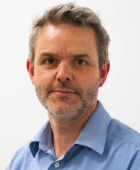
Name: Simon Wheeler
Current organisation and role: Head of Development, Enso Energy
Experience, qualifications and membership of professional bodies:
- 20+ years of environmental impact assessment, permitting and project development. Focussing on renewable energy (wind, solar, hydro), broader power sector and linear infrastructure projects (road, rail, powerlines)
- BSc Hons (Geography and Environmental Studies)
- Chartered Environmentalist (C Env) and Member of the Institution of Environmental Sciences (MIEnvSc)
What was your motivation for joining the IAG: An interest in expanding my network and sharing knowledge and experience in renewable energy development and deployment.
How do you see the IAG contributing towards Renewable Energy at Penryn: Direct input and involvement from industry should provide a more relevant and targeted course. Some experience from the coalface of development and deployment is important as it brings some reality of the challenges the industry faces.
What expertise do you bring to the group: First hand experience of deployment of renewable energy projects. A deep understanding across the full range of project development workstreams, including planning and policy underpinning the need for renewables, environmental assessment and design factors, project economics and technical considerations.
What skills do you think are most important in an engineer: Good communication skills. Willingness and ability to look for practical solutions. Perseverance and resilience.

